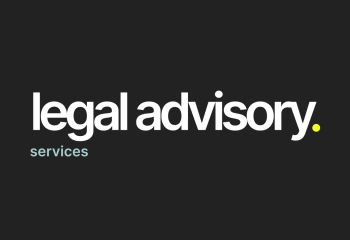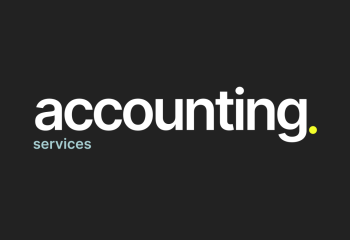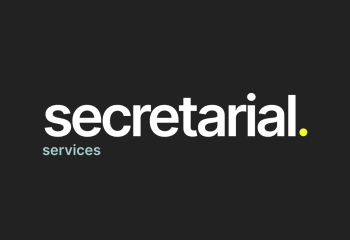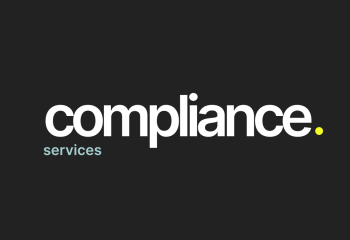DRAFT DECREE AMENDING DECREE NO. 15/2018/NĐ-CP
Views: 3291
(4).png)
-
Introduction
The Ministry of Health is leading the drafting and soliciting comments on a draft Decree amending Decree No. 15/2018/NĐ-CP dated 2 February 2018, which provides guidance for the implementation of certain provisions of the Law on Food Safety. The amendments aim to remedy deficiencies in self-declaration, advertising, and post-market surveillance while enhancing product quality, aligning with international practices, and facilitating administrative reform.
-
Key changes introduced by the draft decree
-
Administrative Reform
The draft removes certain cases of state inspection for imported food products (for example, products that already have a registration/notification or products intended solely for in-house production).
It simplifies procedures for designating testing laboratories: reducing required dossier items (removing 4 out of 9 document types), and abolishing some supervision exemptions while loosening certain business registration documentation requirements.
The Ministry of Health, Ministry of Agriculture & Rural Development, Ministry of Natural Resources & Environment, Ministry of Industry & Trade, Ministry of Finance and local authorities are required to develop online systems and share data with the National Public Service Portal.
-
Tighter control of self-declaration and special product groups
The draft introduces mandatory registration of product notifications (instead of open self-declaration) for product groups such as: dietary supplements, medical-nutrition products, foods for special dietary uses, and infant/toddler nutrition (under 36 months).
It requires full disclosure of quality specifications, not only safety criteria, to address companies overstating benefits or providing incomplete/irresponsible declarations.
-
Strengthened post-market surveillance and enforcement
The draft clarifies plans and frequency for routine and ad-hoc post-market inspections, and allows authorized testing bodies to take surveillance samples proactively.
It requires public disclosure of product notification dossiers, records of post-market checks, and enables administrative actions such as revoking notifications or removing product information from official management systems when violations are found.
-
Higher standards for facilities producing special products
Facilities producing the above-mentioned special product groups must obtain safety/quality certifications aligned with international standards such as GMP, HACCP, ISO 22000, IFS, BRC, FSSC 22000, or equivalents.
-
Introducing Procedures for Re-Issuance and Extension of Work Permit Exemption Certificates
E-commerce platforms, social media, and influencers promoting food products (especially functional foods and supplements) must disclose sponsorship relationships and follow codes of conduct to reduce misleading or deceptive advertising.
-
Key Advantages and Challenges for Businesses
The Draft introduces several reform-oriented changes that help shorten processing times and reduce the number of required documents. Mandatory registration and full disclosure of quality indicators ensure that products meet declared commitments. Stronger governance and transparency: Post-market surveillance, dossier revocation, and removal of non-compliant information strengthen consumer protection. Alignment with international practices: Greater recognition of international food safety systems facilitates exports and global market access.
However, it is also important to recognize that these changes may create challenges for businesses. Higher compliance costs: Small businesses, especially in the special food sector, may face difficulties meeting international standards such as HACCP or GMP. Uneven implementation capacity: Developing and integrating online systems and data-sharing may vary across ministries and local authorities due to differing technical capabilities. Difficulties in monitoring online advertising: Despite clearer rules, effectively supervising influencers and social media platforms remains a significant challenge.
The draft Decree amending Decree 15/2018/NĐ-CP demonstrates a significant initiative by the Ministry of Health to enhance transparency, safety, and compliance in the food market. Strengthened requirements for public filing, post-market surveillance, and advertising oversight should better protect consumers and ensure corporate accountability. However, effective implementation will require adequate resources and coordination between businesses and regulatory authorities.
-
ALTAS’ Services in Vietnam
-
Business Licensing Package: including Company Establishment, Investment Registration, and Post-Registration Compliance: We provide guidance on post-registration obligations, such as tax registration, social insurance registration, and Corporate Secretarial Services;
-
Operational/ Specialized Licenses: We assist with obtaining operational licenses for specific business activities and regulated industries such as manufacturing, trading, services, e-commerce, Healthcare, Educational or Food & Beverage (restaurants) etc.;
-
Tax & Accounting & Bookkeeping Services: We assist with all aspects of tax compliance, bookkeeping services, social insurance contributions, and compliance with labor regulations. We also assist with Tax Settlements and Tax Refund for businesses including negotiating with tax authorities and resolving any outstanding tax liabilities;
-
Data Protection: We assist with compliance with data protection regulations including drafting, reviewing Data Protection Impact Assessments (DPIAs), Data Processing/Transfer Agreement, Privacy Policies and necessary documentation required by the Personal Data Protection Decree (PDPD);
-
Dispute Resolution including Litigation, Mediation, Arbitration; and
-
Legal Retainer Services upon Client’s demand.
ALTAS LAW is committed to supporting investors and businesses during this volatile period. Please contact contact@altas.vn if you need further information or assistance.
Copyright © 2025 ALTAS LAW. All rights reserved. Ownership: This documentation and content (Content) is a proprietary resource owned exclusively by ALTAS LAW (meaning ALTAS LAW, ALTAS CORP and its member firms). Use of this Content does not of itself create a contractual relationship, nor any attorney/client relationship, between ALTAS LAW and any person. Disclaimers: The Content provided is for informational purposes only and may not reflect the latest legal or regulatory developments. Summaries of laws, regulations, and practices are subject to change. This Content does not constitute legal or professional advice for any specific situation and should not be relied upon as a substitute for reviewing and complying with applicable laws, rules, regulations, or official forms. Always seek legal counsel before making any decisions or taking any action based on this Content. ALTAS LAW, along with its editors and contributing authors, make no guarantees regarding the accuracy of the Content and explicitly disclaim any liability for any consequences resulting from actions taken, allowed, or omitted, whether fully or partially based on any part of the Content. The Content may include links to external websites, and external sites may also link to it. ALTAS LAW is not responsible for the content or functionality of any such external websites and disclaims all liability for any issues arising from their content or operation. Please note: Past results do not guarantee similar outcomes.
---
Prepared by:
Senior Legal Associate at ALTAS Law - Nguyen Tran Ngoc Thach
Date: 18/9/2025














(4).png)

![[LEGAL UPDATE] WHAT TECHNOLOGY SHOULD BE DEPLOYED BY NOTARY OFFICES FOR FULFILMENT OF PERSONAL DATA PROTECTION OBLIGATIONS? [LEGAL UPDATE] WHAT TECHNOLOGY SHOULD BE DEPLOYED BY NOTARY OFFICES FOR FULFILMENT OF PERSONAL DATA PROTECTION OBLIGATIONS?](thumbs/210x144x1/upload/news/legal-update-j-jan2025-2-5840.png)

![[LEGAL UPDATE] KEY HIGHLIGHTS OF THE NEW LAW ON NOTARIZATION 2024 [LEGAL UPDATE] KEY HIGHLIGHTS OF THE NEW LAW ON NOTARIZATION 2024](thumbs/210x144x1/upload/news/legal-update-j-jan2025-6-9279.png)
![[LEGAL UPDATE] ELECTRONIC IDENTIFICATION FOR FOREIGNERS WITHOUT TEMPORARY RESIDENCE CARDS IN VIETNAM [LEGAL UPDATE] ELECTRONIC IDENTIFICATION FOR FOREIGNERS WITHOUT TEMPORARY RESIDENCE CARDS IN VIETNAM](thumbs/210x144x1/upload/news/legal-update-j-jan2025-5-5270.png)
![[LEGAL UPDATE] TRANSITIONING TAX IDENTIFICATION NUMBERS TO PERSONAL IDENTIFICATION NUMBERS FROM JULY 1, 2025: ROADMAP AND PRACTICAL NOTES [LEGAL UPDATE] TRANSITIONING TAX IDENTIFICATION NUMBERS TO PERSONAL IDENTIFICATION NUMBERS FROM JULY 1, 2025: ROADMAP AND PRACTICAL NOTES](thumbs/210x144x1/upload/news/legal-update-j-jan2025-3-6884.png)
![[LEGAL UPDATE] CIRCULAR 03/2025/TT-NHNN - A NEW LEGAL FRAMEWORK FOR INDIRECT INVESTMENT ACCOUNT [LEGAL UPDATE] CIRCULAR 03/2025/TT-NHNN - A NEW LEGAL FRAMEWORK FOR INDIRECT INVESTMENT ACCOUNT](thumbs/210x144x1/upload/news/legal-update-j-jan2025-2-2494.png)








